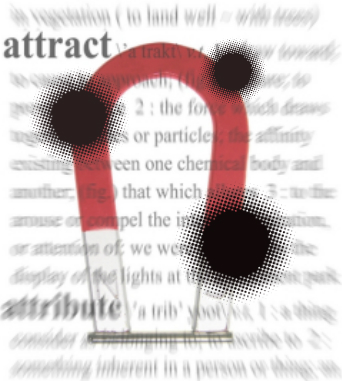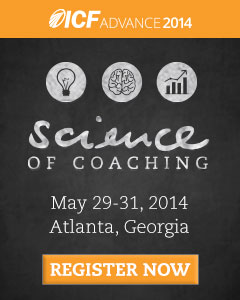 Positive Psychology is sometimes confused with positive thinking and even the Law of Attraction. But positive psychology differs in one very important manner: it is subject to rigorous scientific research.
Positive Psychology is sometimes confused with positive thinking and even the Law of Attraction. But positive psychology differs in one very important manner: it is subject to rigorous scientific research.
The Law of Attraction is a collection of beliefs about how you can attract more of what you want into your life. People who believe in the Law of Attraction may disagree on some aspects of it, but in general, the focus is on positive thinking and tools such as gratitude, affirmations and visualization. It’s sometimes presented as an ancient “secret”, or simply a tool that some of today’s most successful people employ to reach their goals. Now there is a growing body of scientific research into tools used within the Law of Attraction framework.
Science doesn’t always get things right (remember when cholesterol was bad and nobody ate eggs?). But good science keeps asking questions and testing its theories until it does get it right, whereas belief systems, such as the Law of Attraction, sometimes get it wrong and when they don’t deliver, blame can be cast unfairly on the wrong people.
DISCLAIMER: If you’re already practicing the Law of Attraction and getting everything you want – and you’re generally happy with your life – read no further. What you’re doing seems to be working for you. But if, like many, you’ve read books by Law of Attraction experts, or taken classes with Law of Attraction teachers, or attended a Law of Attraction church, or you’ve coached with Law of Attraction coaches and you’re disappointed or frustrated by your lack of results – and in particular if your experts, teachers, ministers, or coaches told you it’s all your fault because you’re doing it wrong – it may be time to ask for a refund and this article may just help you.
Experts, teachers, ministers, and coaches are responsible for finding out the truth and sharing it. If what they tell you is true, you’ll find evidence of it when you test it in your own life. If not, maybe what you’ve been taught is incorrect. The following is based on over 20 years of peer-reviewed research and it turns out that much of what has been taught about the Law of Attraction is just plain wrong…
1. First the good news: positive people do tend to get more of what they want. Purveyors of Positive Thinking and the Law of Attraction got this one right – at least up to a point. However, if your Law of Attraction teacher offers some quasi-scientific-sounding explanation such as, your thoughts send out magnetic vibrations that literally attract what you want to you, start looking for the exit, because that’s baloney. 
The brain does emit weak electromagnetic waves, but fortunately for your head, they aren’t nearly as strong as those emitted by the MRI machine, at right, which can cause metal objects to fly through the air towards it and apparently is thinking really hard about a metal chair.
Positive psychology researcher, Barbara Fredrickson, who wrote the book on Positivity, has spent 20 years researching positivity, which she defines as moments of positive feelings. She says positive feelings tend to broaden our perspectives so that we notice the multitude of possibilities that are already there. There’s no need to attract good things; they are already all around you. The trick is to notice them and positivity helps you do that by broadening your perspective. Shift your perspective to greater positivity and over time you can transform yourself and your life for the better. But…
2. You can overdo it: Too much positivity is associated with chaos, failure, and mental illness. The right amount of positivity elicits greater openness, curiosity, connection and wisdom, but beyond a certain point, increased positivity tends to become self-centered, grandiose, and even greedy and it causes people to take foolish risks, or fail to notice potential problems. Many purveyors of positive thinking and the Law of Attraction tend to encourage limitless positivity, which ultimately harms rather than helps. But here’s a shocker…
3. The bad news: Getting what you want doesn’t actually make you happy. If thinking about what you want feels good, that’s the main reward you’ll get from it (read #4 for more on why that is). According to research by positive psychologist, Sonja Lyubomirsky, most people believe that getting what they want, such as a million dollars, a fabulous home, the perfect mate, will make them happy, but those things only account for about 10% of your overall happiness and they boost your mood for only a short time. And this…
4. Worse news: Visualizing what you want may actually prevent you from getting what you want! Yep, researchers have found that people who only visualize the positive outcome of reaching their goals actually are less likely to reach them. There are some exceptions to this rule, which may account for why visualizing has become so popular – that and the fact that it’s so easy to do, but most people think the reason it’s not working for them is because they’ve been told they’re doing it wrong, so they keep trying to get it right. There are ways to use visualization effectively, but if you’re only visualizing positive outcomes, your visualization may do more harm than good.
From the Institute of Coaching: "In their 2011 Journal of Experimental Social Psychology article, authors Heather Barry Kappes and Gabriele Oettingen argue that “positive fantasies that idealize the future are found to be inversely related to achievement over time: the more positively the fantasies are experienced, the less effort do people invest in realizing these fantasies, and the lower is their success in achieving them” (p. 719)."
Then there are these pitfalls of the Law of Attraction…
5. A little bit of knowledge is indeed dangerous. It’s all too common for people to hear the amazing power of positivity and then make erroneous assumptions. The benefits of positivity are mind-blowing. In addition to boosting happiness and helping people succeed at goals, positivity also strengthens the immune system and helps protect the heart from disease. Some positive psychology tools have even been shown to lengthen life and protect the brain from mental illness. That doesn’t mean that people who get sick, or experience problems, or feel depressed are to blame for their misfortunes (blame is negativity, by the way). There are thousands of causes for every outcome. It also doesn’t mean that anyone should ever police their thoughts and try to drive out all negativity. That’s just crazy-making. It’s also not necessary to avoid people who are suffering, unless they significantly contribute to your own stress and misery. Compassion and loving connection are extremely positive. The foregoing aren’t just pitfalls of the Law of Attraction, but also of Positive Thinking, in general, and even of positive psychology, when it’s not fully understood. Okay, one more point that’s a bit scary. This one doesn’t come from positive psychology, but…
The Law of Attraction has this in common with cults: The Law of Attraction is not a cult, but it has something in common with many cults. It is the insistence that you replace your current worldview with a completely new one in order to get what you want and that you must control your thoughts and eliminate any deviation from what is prescribed in order to succeed. That robs you of your inner knowing, common sense, intuition, confidence, etc. Then you become dependent upon the Law of Attraction “experts” to help you succeed. Usually they’re happy to sell you more books, programs, coaching, seminars, etc. that explain all over again what and how you should think. Folks do get rich with the Law of Attraction, but it’s usually the sellers, not the buyers.
There are more positive psychology findings that counter claims of the Law of Attraction, but this handful of findings should be enough to plant healthy skepticism in most folks and perhaps spark curiosity about the exciting science of positive psychology.
And again, the Law of Attraction is a collection of beliefs. Not all version of it share all the problems described in this article. If you’re getting what you want while using the Law of Attraction, maybe it’s working well for you. But be a curious skeptic, not a passive consumer.
Learn everything you can about positive psychology and you’ll probably enjoy a better, healthier life. If you’re going to offer it as part of your profession, get professional training. If you want to coach with positive psychology, I hope you’ll consider the Certified Positive Psychology Coach® Program, which thoroughly integrates positive psychology and other relevant sciences with advanced coaching techniques and is approved/licensed by the ICF and IAC.
Find a Certified Positive Psychology Coach® here.
Download the Certified Positive Psychology Coach® Fact Sheet below:









 Positive Psychology
Positive Psychology

 I just watched a lecture by positive psychologist,
I just watched a lecture by positive psychologist, 

.jpg) Apparently, the International Coach Federation (ICF) agrees with me that science is
Apparently, the International Coach Federation (ICF) agrees with me that science is
